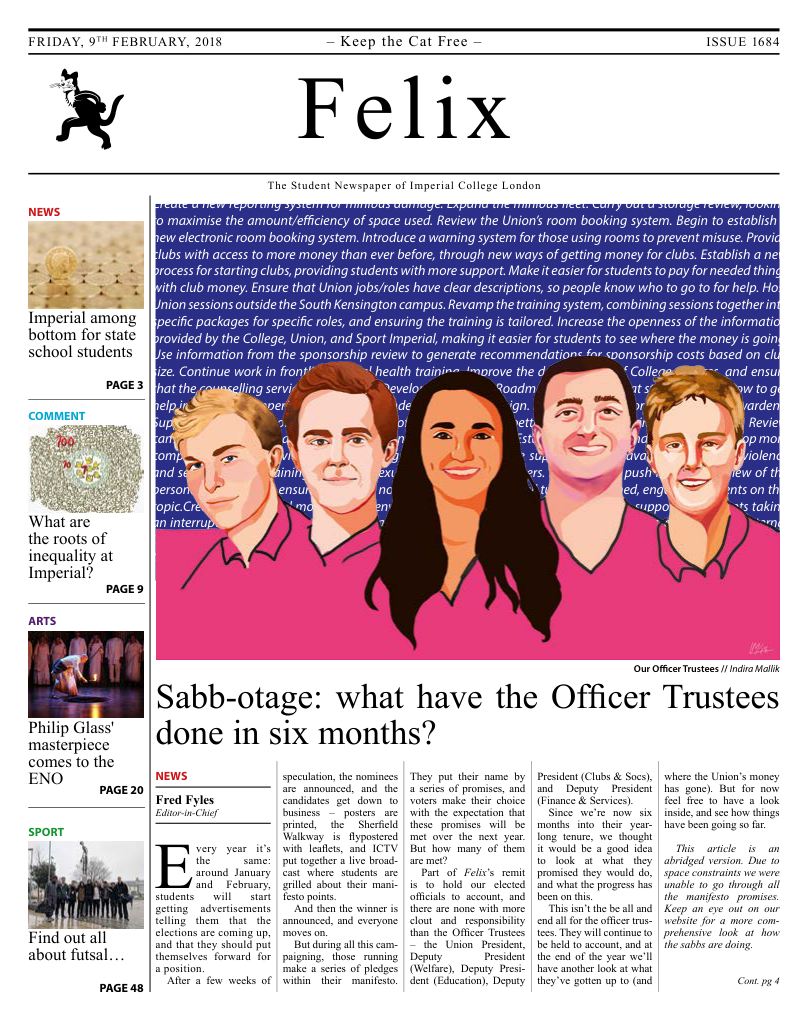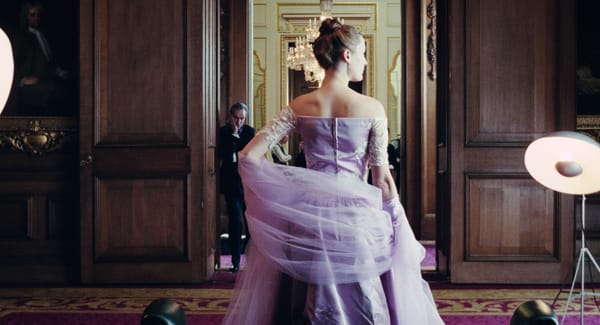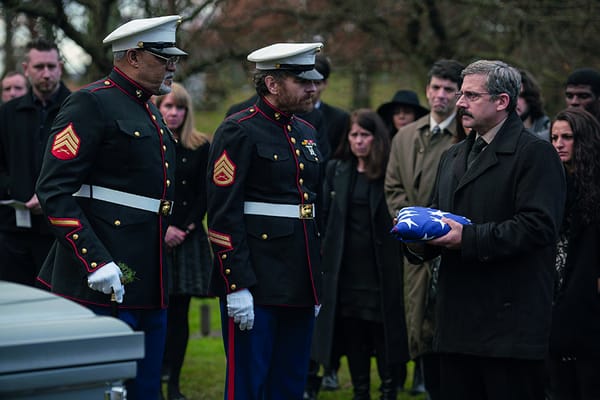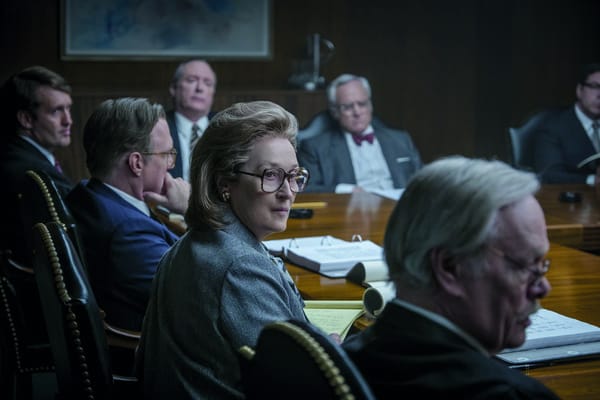Phantom Thread: A haunting masterpiece
Sir Daniel Day-Lewis bows out on a high as Paul Thomas Anderson returns with the best film of the year.

Though he excelled as a young actor in the National Youth Theatre, in 1975 Daniel Day-Lewis made a decision that almost deprived us of some of the very greatest performances ever seen on screen. Then an unruly 18 year old, Day-Lewis elected not to pursue the arts, instead applying for a five year apprenticeship as a cabinet-maker. Fortunately for cinephiles everywhere, he was rejected due to lack of experience. Instead he was accepted at the Bristol Old Vic Theatre School, and the rest is history. Day-Lewis’ passion for the crafts is well known – a dedicated woodworker, he also once worked as a road-cobbler in Tuscany for 18 months during one of his notoriously long lay-offs between acting jobs. He uses this love to aid his portrayal in Phantom Thread of a fastidious haute couture dressmaker in the high society glamour of 1950s London as he heads into his longest lay-off of all: retirement.
The couturier at the centre of this tale is the wonderfully named Reynolds Woodcock. He operates a fashion salon from his towering Georgian townhouse in Fitzroy Square that very closely resembles the Saville Row house of Sir Hardy Amies, the man behind the crisp, understated looks of the Queen’s early reign. As ever with Anderson, his lead is an amalgamation of a number of fascinating true life figures. In The Master, Lancaster Dodd was a mashup of L. Ron Hubbard and John Steinbeck; here, Woodcock is drawn from the likes of Cristóbal Balenciaga, Christian Dior, and Charles James. As Reynolds goes about his day with extreme routine and superstition – including silent breakfasts – his sister Cyril, played by the wonderful Lesley Manville with icy aplomb, tends to both his pernickety needs and the logistical side of the business. Early on, Reynolds takes a trip to the country for some rest from his exhaustingly procedural life, where he meets young immigrant waitress Alma, giving her the sexiest breakfast order ever on screen. He is instantly taken by her, early on telling her “I feel I’ve been looking for you for a very long time”, and whisks her back to his London lair after a peculiar first date.
“Anderson’s screenplay is endlessly surprising, weaving in directions one never predicts”
To delve into the plot any further would be a miscarriage of justice. Anderson’s screenplay is endlessly surprising, weaving in directions one could never predict as Reynolds and Alma battle for control over their lives, with Cyril – Reynold’s old so-and-so as he affectionately refers to her – watching over with an eagle eye. The film ensues like a dark fairy tale, most closely resembling Rebecca, but comparable in different ways to Sunset Boulevard, All About Eve, and The Red Shoes. It is haunted, paying tribute to the likes of Kubrick, Hitchcock, and the Brothers Grimm at different times, and yet it is incredibly funny. In particular Manville delivers her put downs with a razor sharp tongue, in some of the most memorable lines of an astonishingly quotable film, especially considering Anderson’s intense appreciation of moments of quiet and silence. The whole picture sees technical masters at the top of their game. Aside from Anderson’s writing and directing, and the remarkable performances of Day-Lewis, Manville, and relative newcomer Krieps (who commendably holds her own against one of the finest actors ever to grace the screen), Anderson also serves as his own cinematographer, conjuring pristine shots from the shadowy corners of the town house, adding to the gothic feel of the picture. Jonny Greenwood’s score is a thing of beauty, mixing muted, creepy piano with soaring, romantic strings; meanwhile Dylan Tichenor’s editing is clean and rhythmic. The costume design and production design, from Mark Bridges and Mark Tildesley respectively, are simply sublime.
Anderson, like Day-Lewis, was a tremendous young talent, having achieved more in his twenties than many great directors do in their entire careers. He is a filmmaker synonymous with great American stories, particularly those set in his home state of California: a megalomaniac oil baron going head to head with a young, charismatic preacher at the turn of the 20th century; the beginnings of a scientology-like cult in a United States suffering from an identity crisis post-war; a young man desperately crying out for a family and finding one in the Los Angeles porn scene in the late seventies. Departing his home state for the first time ever, he is at the peak of his powers, eschewing the vast landscapes of the Valley for his most intimate film yet. Both Anderson and Day-Lewis are obsessively driven, reclusive men, only focused on the work, and never seeking fame or celebrity, making their combination the only one that could have worked so well in bringing the world of Reynolds Woodcock to life. Where they differ is on their desire to continue working. Day-Lewis is quite possibly burnt out from the undeniably demanding way in which he becomes the great men he portrays. On the other hand, Anderson, who has never held another job than being a filmmaker, insists that he will go on making films as long as he is allowed to. Long may he continue.
5 Stars
Dir: Paul Thomas Anderson. Script: Paul Thomas Anderson. Starring: Daniel Day-Lewis, Vicky Krieps, Lesley Manville, Richard Graham. 130 minutes









